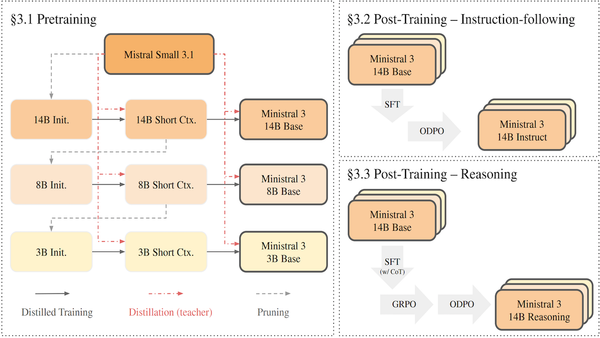OpenAI’s long-awaited GPT-5 has arrived: Claude’s Opus model gets an update
Genie 3, Google’s new world model for gaming and robotics. Eleven Music, the voice startup’s entry into music generation. Cogito V2 Preview, four impressive open-weights models. Jules, Google’s coding assistant, now out of beta.

Welcome back! In today’s edition of Data Points, you’ll learn more about how:
- Genie 3, Google’s new world model for gaming and robotics
- Eleven Music, the voice startup’s entry into music generation
- Cogito V2 Preview, four impressive open-weights models
- Jules, Google’s coding assistant, now out of beta
But first:
OpenAI unveils GPT-5 with routed reasoning and competitive pricing
OpenAI released GPT-5, a unified AI system that automatically switches between fast responses and deeper reasoning based on query complexity. The model achieves state-of-the-art performance across math (94.6 percent on AIME 2025), coding (74.9 percent on SWE-bench Verified), and health benchmarks, while reducing hallucinations by 45 percent compared to GPT-4o. According to OpenAI, GPT-5 excels at complex front-end development, creative writing, and health-related queries, with improvements in instruction following and reduced sycophancy. The system also includes “safe completions,” promising greater safety outside the former refusal-based system. GPT-5 is available now to all ChatGPT users, with Pro subscribers gaining access to GPT-5 Pro for extended reasoning on complex tasks. In the API, GPT-5 costs $1.25/million tokens for input, $10/MT for output, with GPT-5 Mini at $0.25/$2.00 and GPT-5 Nano at $0.05/$0.40. (OpenAI)
Anthropic updates Claude Opus with enhanced coding and research capabilities
Anthropic launched Claude Opus 4.1, an upgraded version of its flagship AI model optimized for complex coding tasks, autonomous research, and creative writing. The model features hybrid reasoning that allows users to choose between instant responses or detailed step-by-step thinking, with API users able to control thinking budgets for cost optimization. On Anthropic’s tests, Claude Opus 4.1 achieved industry-leading results on SWE-bench for coding and demonstrated strong performance on benchmarks like MMLU and GPQA. Anthropic says the new version of Opus offers superior handling of multi-step problems and long-horizon tasks, making it particularly valuable for building sophisticated AI agents and automating complex workflows. The model is available through Anthropic’s API, Amazon Bedrock, and Google Cloud’s Vertex AI at $15 per million input tokens and $75 per million output tokens, with discounts up to 90 percent through prompt caching and batch processing. (Anthropic)
Google DeepMind unveils Genie 3, an AI that generates playable 3D worlds from text
Genie 3’s world model generates interactive 3D environments from text prompts, allowing users to navigate interactive worlds in real-time at 24 frames per second and 720p resolution. The model can maintain environmental consistency for several minutes, simulate physical properties like water and lighting, and create settings ranging from natural landscapes to fantastical animated worlds. Genie 3 introduces “promptable world events,” enabling users to modify environments through text commands, such as changing weather conditions or adding objects, which could prove valuable for training AI agents in varied scenarios. Besides gaming and video, Genie 3 could provide unlimited simulated environments for robotic agent training, though current limitations include restricted action spaces and interaction durations of only a few minutes. Google DeepMind is conducting a limited research preview with select academics and creators to gather feedback before broader release. (Google)
ElevenLabs launches music generation service with commercial licensing
Voice AI startup ElevenLabs released Eleven Music, a service that generates studio-quality music from text prompts in multiple languages and genres. The company secured licensing deals with Merlin Network and Kobalt Music Group to train its AI model on independent artists’ work, allowing the generated music to be used commercially in films, TV shows, podcasts, games, and advertisements. The service includes safeguards preventing generation of songs using specific artist names or copyrighted lyrics, addressing concerns that led major labels to sue competitors Suno and Udio. Eleven Music costs $0.50 per minute of generated audio. (ElevenLabs)
Cogito releases high-performing open-weights reasoning models
Cogito v2 Preview includes four hybrid reasoning models under open license, including two mid-sized models (70B dense, 109B MoE) and two large models (405B dense, 671B MoE). The 671B MoE model matches or exceeds the performance of DeepSeek v3 and DeepSeek R1 models while approaching closed frontier models like o3 and Claude 4 Opus. The models use a new technique called Iterated Distillation and Amplification (IDA) to scale intelligence by internalizing reasoning processes through iterative policy improvement, resulting in 60 percent shorter reasoning chains than DeepSeek R1. The models were trained for less than $3.5 million combined and are available on Hugging Face or through APIs on Together AI, Baseten, and RunPod. (Cogito)
Google launches Jules, an AI coding assistant powered by Gemini 2.5
Google officially released Jules, its AI coding agent, after a beta period where thousands of developers used it to complete over 140,000 code improvements. The tool now runs on Gemini 2.5 Pro, using the model to create coding plans and generate higher-quality code outputs. New features include GitHub issues integration, multimodal support, and the ability to reuse previous setups for faster task execution. Like Anthropic and Microsoft, Google is pushing to compete directly in the AI coding assistant market alongside third-party tools like Cursor. Jules is available in three tiers: free introductory access, Google AI Pro with 5x higher limits ($20/month), and Google AI Ultra with 20x higher limits. (Google)
Still want to know more about what matters in AI right now?
Read this week’s issue of The Batch for in-depth analysis of news and research.
This week, Andrew Ng discussed why Meta and other capital-intensive AI companies are offering unprecedented salaries to top AI talent, explaining how massive investments in GPU infrastructure make it financially rational to pay exceptionally high compensation to ensure the hardware is used effectively.
“Many of Meta’s properties rely on user-generated content (UGC) to attract attention, which is then monetized through advertising. AI is a huge threat and opportunity to such businesses: If AI-generated content (AIGC) substitutes for UGC to capture people's attention to sell ads against, this will transform the social-media landscape.”
Read Andrew’s full letter here.
Other top AI news and research stories we covered in depth:
- OpenAI returned to open-weights models with GPT-OSS, its first open release since GPT-2, available in 120B and 20B parameter versions.
- A new study confirmed that reasoning models generating more tokens have a larger carbon footprint.
- Zhipu AI (Z.ai) launched open-weights GLM-4.5 models, matching the performance of top contenders like Claude and DeepSeek.
- Robot surgeons from Stanford, Johns Hopkins, and Optosurgical operated on animal organs with no human intervention.




